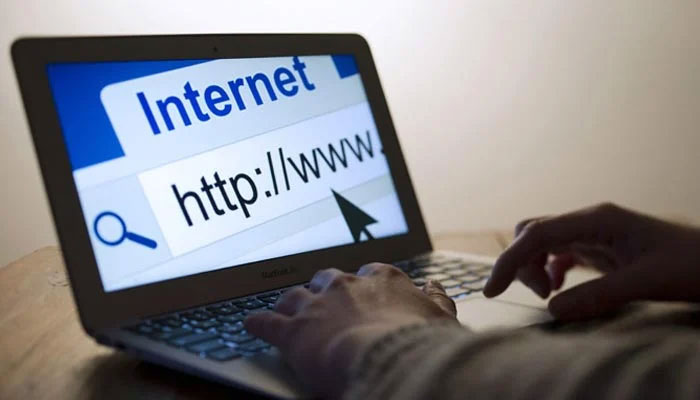Unplugged nation
There seems to be a vast disconnect between policymakers in Pakistan and tech-savvy people. Otherwise, there is no logical explanation for the fact that every few months the Pakistan government decides to shut off the internet arbitrarily or goes into denial mode when users complain of the internet miraculously and mysteriously going ‘slow’. On Sunday (December 17), internet users in Pakistan made desperate attempts to get connected to the internet only to find that there was a disruption of many websites in the country.
The allegation is – and there is little by way of any way to ‘prove’ the truth here – that the ‘go-slow’ on some websites (like social media apps) was seemingly taken to disrupt the online gathering of PTI supporters who had planned a one-of-its-kind virtual ‘jalsa’ to boost the supporters’ morale. The virtual gathering also included a clip of Imran Khan’s speech generated by AI which used Imran’s letter from jail as the input text. An internet tracking agency on X (formerly Twitter), NetBlocks, confirmed on Sunday that disruptions to social media platforms in Pakistan, including YouTube, came just ahead of the gathering organized by the PTI.
If the decision was indeed taken for this reason, then policymakers as always took a self-defeating step. For starters, most people had no idea about the gathering (given the PTI’s track record of going viral on social media, announcements made for this gathering were, in internet slang, not trending). The disruption, however, made more people aware of the gathering and helped the PTI in sending its message across.
And while the move couldn’t stop the PTI from holding its virtual jalsa, it negatively affected thousands of people who had to pause their important work and wait for the internet services to get back to normal. Blocking social media sites arbitrarily affects people’s jobs. It is high time our policymakers understood that the internet does not work in isolation. Besides social media applications, web-based email services like Gmail also encountered disruptions. Freelancers working remotely would have had to deal with an unexpected disruption – an inconvenience that could cost people high-paying clients and projects. But the authorities seem to be blissfully unaware of the repercussions of decisions taken in panic mode.
On the one hand, we have the caretaker IT minister who wants to take IT exports from the existing $2.6 billion to $10 billion in the next three years while on the other, we have a government that is still unable to understand how internet disruptions can be damaging for the economy. In May 2023, the government of the time shut down the internet for at least three days. That led to several online marketplaces flagging the profiles of freelancers from Pakistan and warning potential clients about internet disruptions in this region. The Pakistan government (whatever its political ambitions may be) needs to understand that meddling with the internet will not do us any favours. In fact, it will highlight Pakistan as a deeply unstable country, unfavourable for any IT-related work. This is not the reputation we want. Authorities’ obsession with ensuring that the voices or faces or words of specific individuals remain suppressed in the country will push us back to the Stone Age, turning investors away. All policies (and all attempts made to control particular messaging) should be made with a long-term plan, and arbitrary decisions must be avoided.
-
 Record Set Straight On King Charles’ Reason For Financially Supporting Andrew And Not Harry
Record Set Straight On King Charles’ Reason For Financially Supporting Andrew And Not Harry -
 Michael Douglas Breaks Silence On Jack Nicholson's Constant Teasing
Michael Douglas Breaks Silence On Jack Nicholson's Constant Teasing -
 How Prince Edward Was ‘bullied’ By Brother Andrew Mountbatten Windsor
How Prince Edward Was ‘bullied’ By Brother Andrew Mountbatten Windsor -
 'Kryptonite' Singer Brad Arnold Loses Battle With Cancer
'Kryptonite' Singer Brad Arnold Loses Battle With Cancer -
 Gabourey Sidibe Gets Candid About Balancing Motherhood And Career
Gabourey Sidibe Gets Candid About Balancing Motherhood And Career -
 Katherine Schwarzenegger Shares Sweet Detail From Early Romance Days With Chris Pratt
Katherine Schwarzenegger Shares Sweet Detail From Early Romance Days With Chris Pratt -
 Jennifer Hudson Gets Candid About Kelly Clarkson Calling It Day From Her Show
Jennifer Hudson Gets Candid About Kelly Clarkson Calling It Day From Her Show -
 Princess Diana, Sarah Ferguson Intense Rivalry Laid Bare
Princess Diana, Sarah Ferguson Intense Rivalry Laid Bare -
 Shamed Andrew Was With Jeffrey Epstein Night Of Virginia Giuffre Assault
Shamed Andrew Was With Jeffrey Epstein Night Of Virginia Giuffre Assault -
 Shamed Andrew’s Finances Predicted As King ‘will Not Leave Him Alone’
Shamed Andrew’s Finances Predicted As King ‘will Not Leave Him Alone’ -
 Expert Reveals Sarah Ferguson’s Tendencies After Reckless Behavior Over Eugenie ‘comes Home To Roost’
Expert Reveals Sarah Ferguson’s Tendencies After Reckless Behavior Over Eugenie ‘comes Home To Roost’ -
 Bad Bunny Faces Major Rumour About Personal Life Ahead Of Super Bowl Performance
Bad Bunny Faces Major Rumour About Personal Life Ahead Of Super Bowl Performance -
 Sarah Ferguson’s Links To Jeffrey Epstein Get More Entangled As Expert Talks Of A Testimony Call
Sarah Ferguson’s Links To Jeffrey Epstein Get More Entangled As Expert Talks Of A Testimony Call -
 France Opens Probe Against Former Minister Lang After Epstein File Dump
France Opens Probe Against Former Minister Lang After Epstein File Dump -
 Last Part Of Lil Jon Statement On Son's Death Melts Hearts, Police Suggest Mental Health Issues
Last Part Of Lil Jon Statement On Son's Death Melts Hearts, Police Suggest Mental Health Issues -
 Leonardo DiCaprio's Girlfriend Vittoria Ceretti Given 'greatest Honor Of Her Life'
Leonardo DiCaprio's Girlfriend Vittoria Ceretti Given 'greatest Honor Of Her Life'




